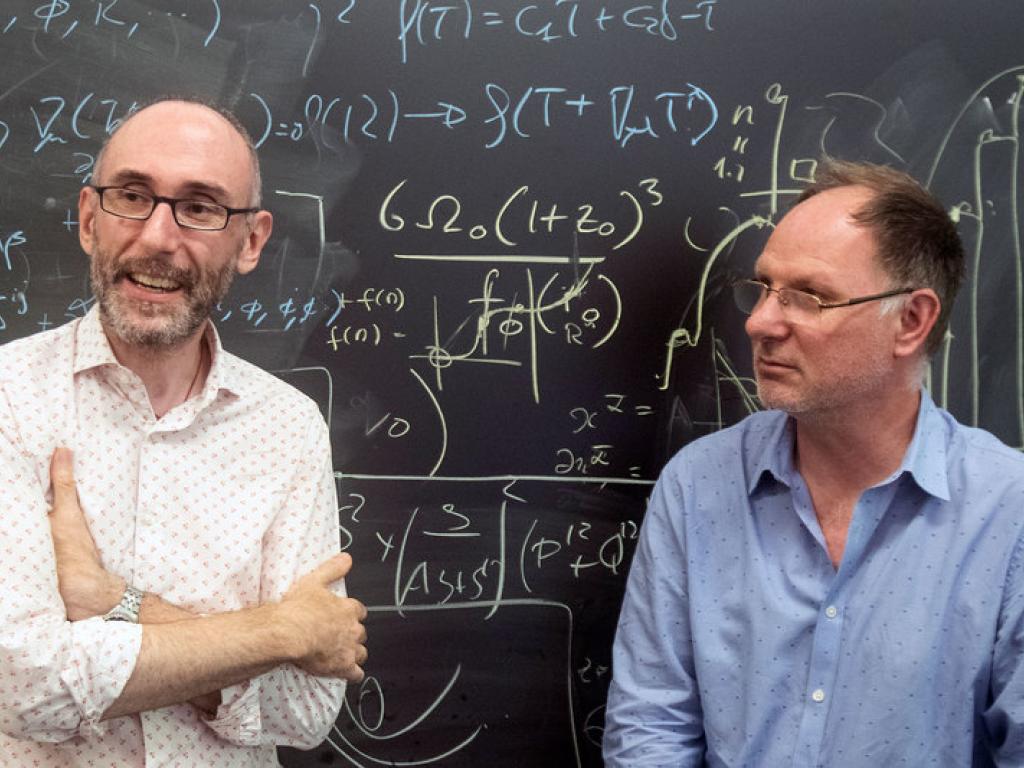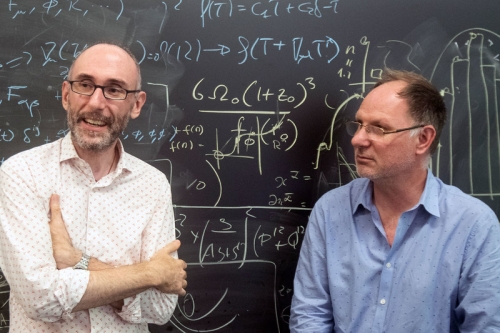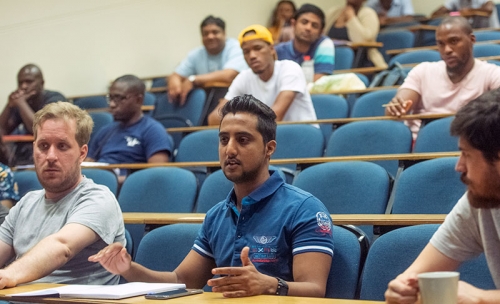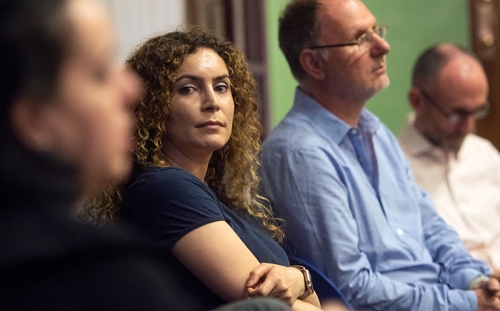Making waves at gravitational summer school


Dr Alvaro de la Cruz-Dombriz and Prof Peter Dunsby are part of the school’s organising committee.
From 20 to 29 January, leading and upcoming experts in the field of gravitational wave science gathered at the University of Cape Town (UCT) for the 31st Chris Engelbrecht Summer School.
The school was hosted by UCT’s Cosmology and Gravity Group (CAGG), which is based in the Department of Mathematics and Applied Mathematics. Local and international participants and lecturers spent nine days delving into advances in the field, covering topics such as numerical simulation of gravitational wave sources, gravitational waves in modified gravity, and post-Newtonian calculations.
“The school is extremely important. It’s aimed at training the next generation of cosmologists and gravity theorists,” said professor of gravitation and cosmology, Peter Dunsby. “It’s a really important opportunity for [students] to talk to leading experts from around the world and also interact with staff and other students in the group.”
Dunsby, who recently ended his tenure as head of the department, is part of the local organising committee that hosted the school. UCT’s Dr Bishop Mongwane is the chair of the committee, with Dr Alvaro de la Cruz-Dombriz (UCT), Dr Julien Larena (UCT), Dr Anne-Marie Nzioki (University of KwaZulu-Natal) and Dr Chris Stevens (Rhodes University) being fellow members.
Lecturers came from across the country and as far afield as Zürich, Switzerland, including Rituparno Goswami (UKZN), Lavinia Heisenberg (EHT Zurich), Denis Pollney (Rhodes University) and Alicia Sintes from the University of the Balearic Islands. Sintes is also a part of the Laser Interferometer Gravitational-wave Observatory (LIGO) collaboration, the founders of which were awarded the 2017 Nobel Prize in Physics.
Gravitational waves
Just over 100 years ago, Albert Einstein predicted “ripples” in spacetime, but it was only on 14 September 2015 that LIGO made the first-ever observation of gravitational waves, which, incredibly, were generated 1.3 billion years ago. Since then, there have been at least four more detections, marking significant advances in the field.
Dunsby explained that gravitational waves occur when two neutron stars or black holes are orbiting around each other and then suddenly coalesce.
“That’s a very catastrophic event. In fact, it generates so much energy, it’s equivalent to exploding ... hundreds of millions of atomic bombs at the same time.
“It’s a massive energetic event.”

Students attending the summer school came from across the country.
This then, Dunsby said, sends out ripples and the signal from that event is transmitted in the form of gravitational waves. Because black holes cannot be seen using electromagnetic radiation directly, gravitational waves provide one of the best ways of measuring the physics of such an event.
“So, what’s exciting there is that … it’s opened up a new window of the universe.”
Additionally, said De la Cruz-Dombriz, a lecturer in the mathematics department and a member of CAGG, this “new piece of information is going to tell us about how neutron stars behave”.
Representation and transformation
While the science was the focus of the summer school, the importance of representation, diversity and transformation came to the fore. Of the four lecturers, two are recognised experts based in Africa and two are women.
According to De la Cruz-Dombriz, it is important that female students see themselves represented at this level. This, he hopes, will convince more female students that they too are and can be leading scientists.

Representation of women and people of colour on the panels and at a strategic level is important for students to see.
The same representation is necessary for students of colour and those who come from economically impoverished households.
In addition to his time as head of the department, Dunsby has made significant contributions to capacity building at UCT and across the country through the multi-institutional National Astrophysics and Space Science Programme (NASSP), which aims to produce master’s graduates in the areas of astronomy, astrophysics and space science.
Included in its objectives is “a targeted focus on redress by recruiting and retaining students from historically disadvantaged institutions”.
Already, the NASSP programme has proven necessary and successful: *Dr Bishop Mongwane is a ‘graduate’ of the programme and currently the only black African South African in the mathematics department.
“He is … one of the leading gravitational wave researchers in the country. And with gravitational waves now being at the forefront of gravitational research, there’s huge potential for him to become … a global leader,” said Dunsby.
There are also many other graduates of the NASSP in the Faculty of Science and across the country.
“[The NASSP] has been a big driver for transformation. I think if we have more programmes like that, then transformation at UCT will progress a lot quicker.”
*Dr Mongwane was unfortunately not available at the time of this interview. UCT News will follow up with a profile of his work as soon as possible.
Story: Carla Bernardo
Photos: Brenton Geach
